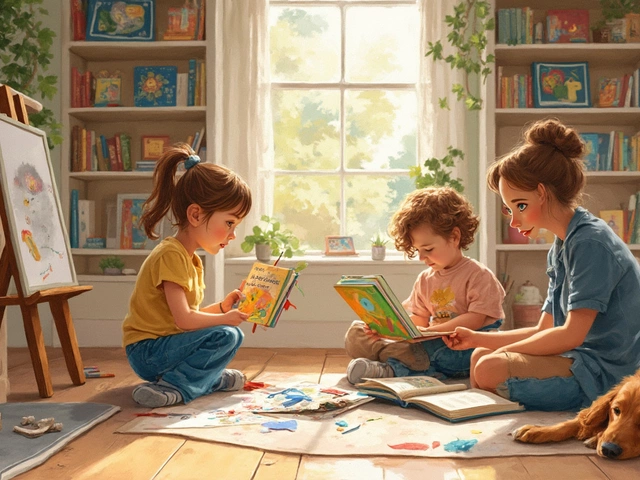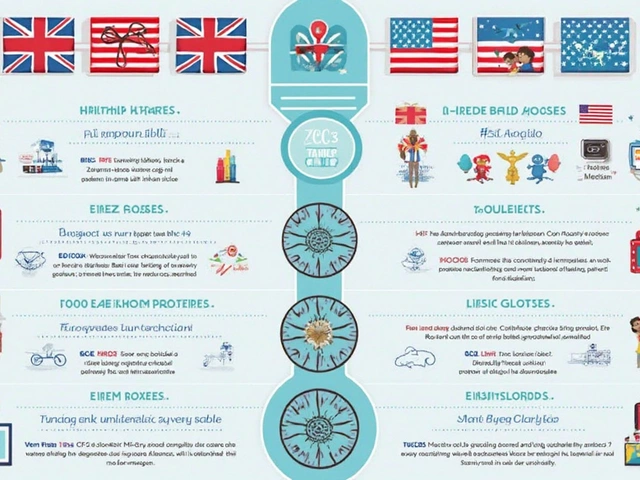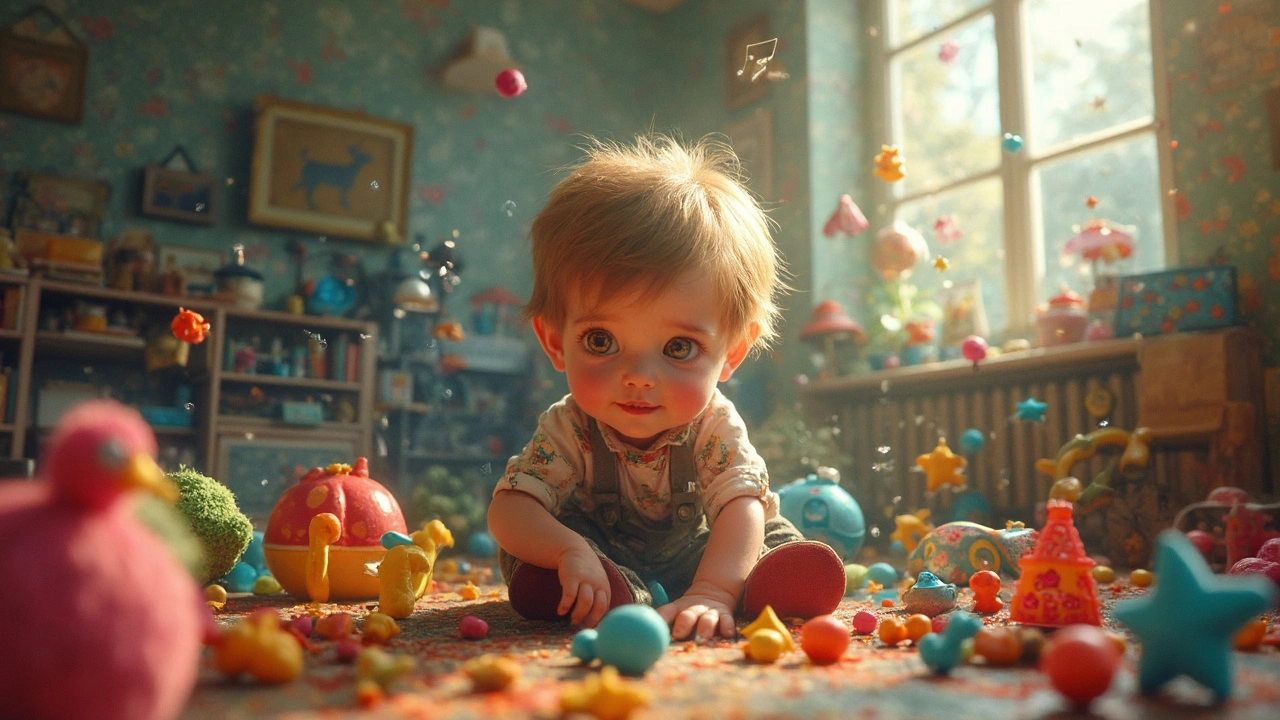You ever notice your kid is just wired a bit differently than others? Maybe they're obsessed with dinosaurs at a level that would impress any paleontologist or they've got a knack for solving puzzles faster than you'd expect. These could be hints that your child is neurodiverse. But don't stress—it's not a bad thing. In fact, it might just be their superpower.
Neurodiversity isn't about labeling a child or putting them in a box. It's about recognizing that every mind works in its own way. Some kids might process the world differently than what's considered 'typical,' and that's perfectly cool. If you're scratching your head wondering how to tell if this is your kid, this guide's got your back.
We'll break down the signs you can look for and dispel some myths out there. Plus, we'll chat about how you can support your child in the best way possible, whether that's getting some insights from a pro or just knowing how to be there for them better. Let's jump in and see what's what with your kiddo's way of seeing the world.
- Understanding Neurodiversity
- Signs to Look Out For
- Common Myths and Misconceptions
- Seeking Professional Help
- Supporting Your Neurodiverse Child
Understanding Neurodiversity
Alright, so what's neurodiversity all about? It's a fancy way of saying that brains don't all work the same way, and that's a good thing. It covers a range of conditions like autism, ADHD, dyslexia, and more. But instead of seeing these as problems, neurodiversity highlights them as natural variations in the human mind. Think of it like different operating systems for computers—they're unique but equally capable in their own right.
An important thing to know: being neurodiverse doesn't mean someone is broken or needs fixing. It's all about seeing the world from different angles, bringing unique strengths and challenges to the table. Judy Singer, a sociologist who coined the term, put it like this:
"Neurodiversity is a concept where neurological differences are to be recognized and respected as any other human variation."Her words remind us to appreciate these differences.
In simple terms, if your child is neurodiverse, they might have a special way of learning and interacting with the world. Some might be super focused and have incredible attention to detail, while others might have amazing social skills. It's about understanding and optimizing their strengths.
Let's bust a myth while we're at it: just because a child is neurodiverse doesn't mean they're quirky all the time or socially awkward. Every kid is different, and these traits vary massively.
When we embrace neurodiversity, we're not just opening doors for our kids but also for society. We benefit from the unique perspectives and problem-solving skills neurodiverse folks bring. It's like adding a whole new set of tools to a toolbox. And who wouldn't want that?
Signs to Look Out For
Okay, so you're curious if your kiddo might be neurodiverse. Let's dig into what you should be looking for without making it a big medical drama. First things first, trust your gut. You know your child better than anyone. That said, here are some concrete signs that could hint at neurodiversity.
One of the first things to check is how your child communicates and interacts. Do they seem unusually shy or incredibly chatty, even with strangers? Maybe they have a hard time picking up on social cues, like sarcasm or body language. You could notice they prefer playing on their own or have an especially strong attachment to routines.
Pay attention to any intense interests or patterns in play. If your child can go on about trains for hours, or they've got a sudden art obsession, that's not just a hobby—it could be a sign of a neurodiverse mind. These are special interests, and they're often quite specific and in-depth.
- Difficulty with changes in routine or environment
- Unique sensitivities to sound, light, or textures
- Repeating words, phrases, or certain motions like hand flapping
- Unusual levels of focus or distraction
If you're still unsure, let's toss in some numbers. A study in 2023 showed that about 1 in 36 kids in the U.S. is identified as having Autism Spectrum Disorder, one form of neurodiversity. And that's just one piece of the puzzle. There's also ADHD, dyslexia, and more. The key takeaway? A mix of these signs could suggest it's time to get a bit more curious about your child's unique brain wiring.
This isn't about rushing to label your kid. It's about understanding them better so you can offer the right help and support as they grow. Recognition is your first step in the journey, leading to positive development.

Common Myths and Misconceptions
We often hear a lot about neurodiversity but separating fact from fiction can be tricky. A big myth is that being neurodiverse is the same as being 'disabled'. Not true. Neurodiverse kids just process the world differently. It doesn't mean they can't be just as successful as their neurotypical peers.
Another misconception? People think if your child is neurodiverse, it's immediately noticeable. Like they're always going to act a certain way or have obvious challenges. But that's not the case for every child. Some have subtle quirks that you might not pick up on immediately.
"Neurodiversity isn't a problem to be fixed; it's a different way of experiencing the world." — Prof. Simon Baron-Cohen, Director of the Autism Research Centre, Cambridge University
A lot of folks believe neurodiversity only includes conditions like autism or ADHD. In reality, it covers a broader range, including dyslexia and dyscalculia. Every mind is unique, after all.
Parents might also worry that recognizing neurodiversity means your child won't have the same opportunities. But this couldn't be further from the truth. By understanding their strengths, you can actually help unlock more potential and tap into talents you both might never have noticed before.
Confused about how to separate flawed assumptions from reality? Check out these reminders:
- Neurodiversity celebrates differences, doesn't label them as defects.
- Not all signs are apparent in early childhood; some show up later.
- A wide variety of conditions fall under the neurodiversity umbrella.
- Embracing neurodiversity can lead to unique skills and strengths.
Seeking Professional Help
Alright, so you've noticed some signs that your child might be a little different in how they engage with the world. That's great because being proactive is the first step toward getting the right support. But where do you start?
The first port of call is usually your child's pediatrician. They're well-placed to recommend the next steps, whether that's a referral to a specialist or some initial assessments. It's worth having a chat about what behaviors you've noticed. Documenting these instances, like when your child shows a particular fascination with special interests or when they exhibit distinct play patterns, can be super helpful.
Depending on what your pediatrician says, you might meet with specialists like child psychologists, occupational therapists, or neurologists. These professionals have tools and assessments that can provide a clearer picture. Don’t be shy about asking questions, like what the assessment involves and how it will help your kiddo.
If you're eyeing a more specific assessment, especially for traits linking to autism or ADHD, you may encounter terms like DSM-5 criteria, which are used for diagnosing these kinds of things. Specialists use these tools to make informed decisions and suggest the next steps.
And here’s a tip—sometimes waiting lists can be long. So, if you've got that sneaky suspicion nagging at you, it's better to start conversations early. Just being on the list is a step toward unlocking resources your child might benefit from. It's all about leveraging that professional insight to navigate what might seem like a dense network of jargon and options.
Lastly, don't underestimate the power of support groups. Connecting with other parents who know the ropes can offer a community, share experiences, and perhaps help you find those hidden gem specialists who are particularly brilliant at working with neurodiverse kids.
Your kid isn't alone, and neither are you. The right help is out there, ready to make this journey not just manageable, but genuinely rewarding for both of you.

Supporting Your Neurodiverse Child
So you’re thinking your child might be neurodiverse? First off, remember it’s all about understanding and supporting them in ways that make sense for their unique minds. Here’s how you can lend that supportive hand.
Creating a supportive environment at home is key. Trying to control everything your kid does isn’t the answer, but setting up a predictable routine can offer them some much-needed stability. You might be used to rolling with the punches, but your little one might thrive on knowing exactly what comes next.
Next, let's talk school. Schools might not always cater perfectly to neurodiverse needs, but you can play a big role in changing that. Be that parent who advocates for their kid’s rights and needs. Set up meetings with teachers, request additional support if required, and don’t shy away from asking for accommodations that’ll help your kid shine.
Community support can also be a game-changer. Seek out local support groups or online communities where other parents share your journey. You can swap stories, advice, and ideas on how to help your kid grow into the best version of themselves.
Professional help is another major resource. Whether you’re considering therapy, special education services, or meeting with specialists, getting expert guidance can open new doors. Not only will this offer you strategies to help your child, but it also provides them with tools to better navigate their world.
Finally, celebrate your child's uniqueness. The world is diverse because of the amazing differences we all have. Encourage them to explore their passions, whether it's art, technology, or something innovative you wouldn't expect. Reinforce their strengths and let them know it’s awesome to be exactly who they are.
- Maintain a predictable environment
- Advocate for school accommodations
- Join support groups or communities
- Seek professional guidance
- Celebrate strengths and passions
Supporting your neurodiverse child might seem like a lot, but remember, you’re not alone. By focusing on these steps, you’ll help them grow and reach their full potential, all while enjoying the journey together.






